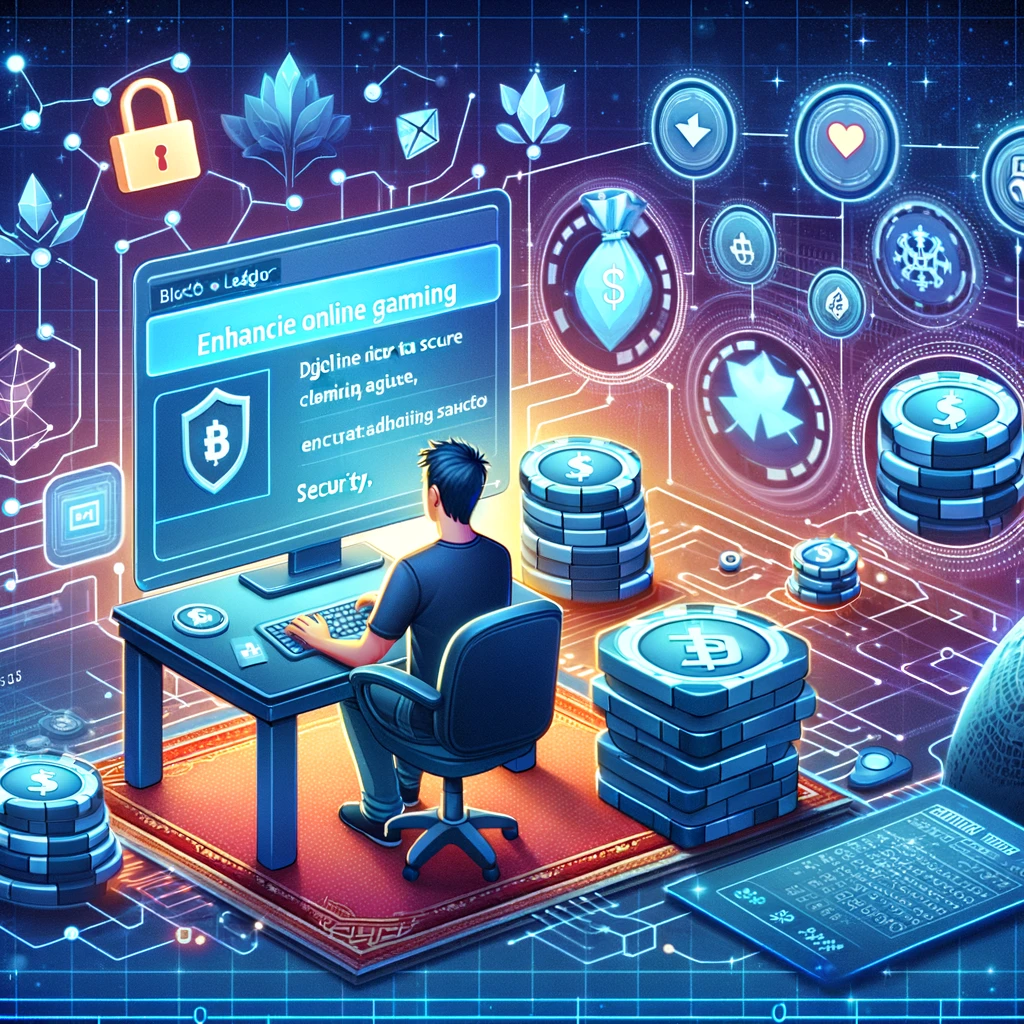Blockchain technology, initially known for its use in cryptocurrencies like Bitcoin, is now revolutionizing various industries, including online gaming. Its unique attributes—decentralization, transparency, and immutability—offer significant advantages for enhancing security in online gaming.
Secure Transactions
In online gaming, transactions are frequent and varied, encompassing the purchase of in-game assets, deposits, and withdrawals. Traditional payment methods often expose players to risks such as fraud and hacking. Blockchain technology mitigates these risks through secure, encrypted transactions. Each transaction is recorded on a decentralized ledger, making it nearly impossible for hackers to alter or manipulate transaction data.
Blockchain ensures that every transaction is transparent and verifiable by all participants in the network. This transparency fosters trust between players and gaming platforms, as all transactions can be audited and verified independently. Additionally, blockchain transactions typically have lower fees compared to traditional banking methods, benefiting both players and operators.
Fair Play
Fairness is a crucial aspect of online gaming. Players need to trust that the games they play are not rigged and that outcomes are genuinely random. Blockchain technology can enhance fairness through its ability to create immutable records and use smart contracts.

Smart contracts are self-executing contracts with the terms of the agreement directly written into code. In online gaming, smart contracts can be used to automate and enforce game rules, ensuring that outcomes are determined by predefined algorithms and not by the gaming operators. This reduces the risk of manipulation and ensures that all players have an equal chance of winning.
Furthermore, the use of blockchain in random number generation (RNG) can enhance trust in game outcomes. Traditional RNG methods can be tampered with, but blockchain-based RNG uses cryptographic algorithms to generate truly random numbers that are verifiable and tamper-proof.
Anti-Fraud Measures
Fraud is a persistent issue in the online gaming industry, affecting both players and operators. Blockchain’s decentralized nature makes it difficult for malicious actors to conduct fraudulent activities. Each transaction is recorded on multiple nodes in the blockchain network, making it virtually impossible to alter or delete transaction history.
Additionally, blockchain can help in combating identity theft. Players can use blockchain-based digital identities to securely verify their identities without sharing sensitive personal information. This reduces the risk of identity theft and ensures that only legitimate players have access to the gaming platform.
Enhanced Data Privacy
Data privacy is a significant concern for online gamers, who often need to provide personal information to create accounts and make transactions. Blockchain technology can enhance data privacy by allowing players to control their data. With blockchain, players can share only the necessary information with gaming platforms while keeping their private data secure.
Moreover, blockchain’s decentralized storage solutions can protect against data breaches. Traditional centralized databases are vulnerable to hacking, but blockchain’s distributed ledger ensures that data is stored across multiple nodes, making it more secure against attacks.
Case Studies
Several gaming platforms have already begun integrating blockchain technology to enhance security and trust. For example, the platform “FunFair” uses blockchain to provide a transparent and fair gaming experience. By leveraging Ethereum smart contracts, FunFair ensures that game outcomes are provably fair and that all transactions are secure and transparent.
Another example is “Decentraland,” a virtual reality platform powered by the Ethereum blockchain. Decentraland allows players to buy, sell, and manage virtual real estate using blockchain, ensuring secure and transparent transactions.
Conclusion
Blockchain technology offers numerous benefits for enhancing security in online gaming. Its ability to provide secure transactions, ensure fair play, combat fraud, and protect data privacy makes it an ideal solution for the online gaming industry. As more gaming platforms adopt blockchain, players can expect a safer and more trustworthy gaming experience. The future of online gaming is set to be more secure and transparent, thanks to the innovative applications of blockchain technology.
